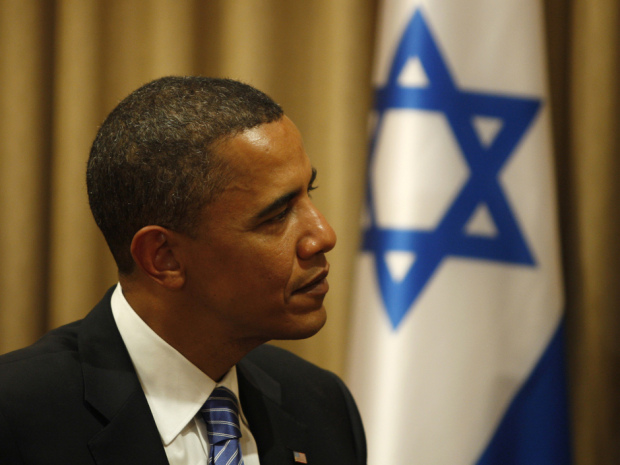IN THE MEDIA
Obama trip to focus on Iran/Syria
February 18, 2013 | Colin Rubenstein

Colin Rubenstein
Australian Financial Review – Feb 18, 2013
http://afr.com/p/opinion/obama_trip_to_focus_on_iran_syria_vzHrOWKIyHl2Tu7yRytmBK
North Korea’s latest nuclear test has again brought into focus the growing urgency of stopping the nuclear weapons program of another country on the road to nuclear weapons capability – Iran. The rapidly closing window of opportunity to either persuade Iran to change course or, if all else fails, disable its nuclear facilities by force, is the backdrop for US President Barack Obama’s visit to Israel next month.
Israeli and US officials have scaled back media expectations for the visit, Obama’s first in office, on a tour slated to include meetings in Jordan and the West Bank.
Meanwhile, Cairo’s omission from the itinerary serves as a reminder of the shifting sands in the Middle East – the lingering question mark over what was once a key US ally and venue for Obama’s conciliatory 2009 speech to the Muslim world.
Both Obama administration officials and Israeli Prime Minister Benjamin Netanyahu have indicated the visit’s agenda will centre on three key issues: Iran’s nuclear weapons program, the crisis in Syria, and renewed peace negotiations between Israel and the Palestinians.
Washington denies the President will be using the visit to advance a specific new Israeli-Palestinian peace proposal. While it is true that some previous presidential visits to Israel have coincided with developments in the peace process, this trip will probably be geared towards bolstering and fine-tuning US foreign policy in the Middle East and rebooting a sometimes awkward Obama-Netanyahu relationship.
To be sure, Obama will explore all options to jump-start negotiations during his visit. Even so, the President is aware he cannot afford to allow the stalled peace process to eclipse either Syria’s bloody civil war or Iran’s illegal nuclear weapons program – pressing issues that are unrelated to the state of Israeli-Palestinian peacemaking.
His overambitious first-term goals behind him, Obama now recognises there is little hope for a comprehensive peace agreement in the short term, regardless of the current Israeli government, due to political realities on the Palestinian side, including the Fatah-Hamas divide and an unwillingness to negotiate without preconditions.
The President further understands he can ill afford to squander precious resources by repeating past ineffective strategies, and cannot forget that his demand in 2009 for a freeze in construction in Israel’s West Bank settlements – a demand met in good faith by Israel’s government over an unprecedented 10-month period – led to nothing but an increase in the pre-conditions set by the Palestinians for the resumption of direct negotiations and, further, their unilateral strategy for statehood without negotiations and compromise with Israel.
Rather, seeking to avoid a repeat of pointless costly exercises at a time of troubling regional volatility, the re-elected Netanyahu and the second Obama administration will be exploring realistic, incremental steps towards better managing Israeli-Palestinian relations and for enhancing prospects for renewed, meaningful negotiations.
Colin Rubenstein is the executive director of the Australia/Israel & Jewish Affairs Council.
Tags: International Security





